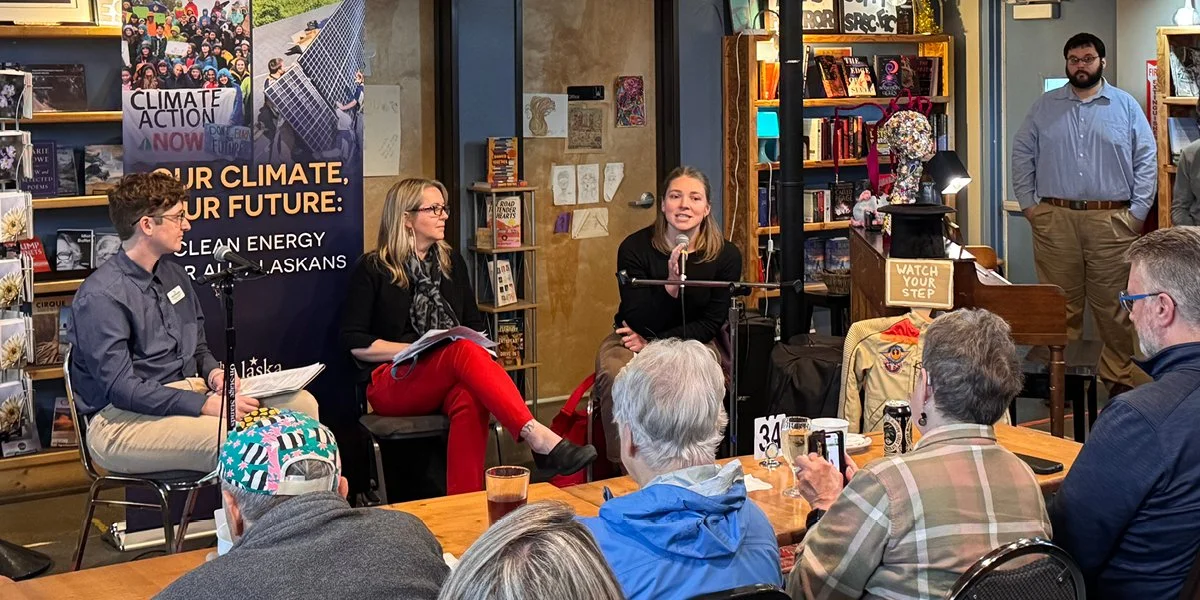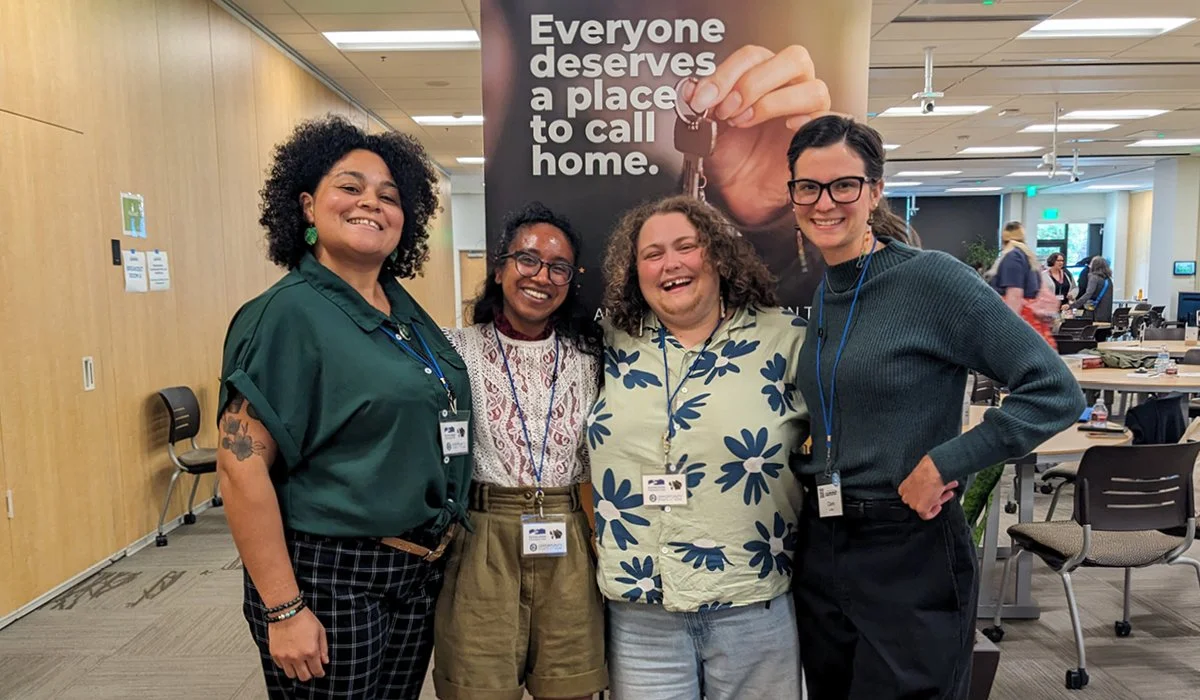The AKPIRG Advocate, September 2025
Stranded: A Community Conversation
on Transit & Housing in Anchorage 🏘️ 🚌
A new policy to update zoning and expand housing near transit is taking shape – but it won’t move forward without community voices like yours.
Join YWCA Alaska and Anchorage Housing Club on October 2 for a community conversation on the intersection between housing and transit challenges in Anchorage. This will be a chance to tell your stories on the record, and have these stories shared back with policy and decision makers who have the power to guide how our city is developed. Use your voice to shape the future of Anchorage! This event is free, but space is limited.
When: Thursday, October 2 @ 6:00pm
Where: The Nave, 3502 Spenard Road Anchorage, AK 99503
Cost: FREE!
Companies Are Stealing From You 📱💰
Hidden fees in banking apps might seem small, but they quietly add up — and big corporations are the ones profiting. AKPIRG’s new animation breaks down how these charges work and what they mean for everyday Alaskans.
This is the first part of our Companies Are Stealing From You series, which explores the many ways big businesses tip the scales against consumers. From predatory lending practices and manipulative app design, to unfair tipping structures inside financial apps, and even the weakening of regulatory bodies meant to protect us. The series will also explore what we can do – how informed, united action can make the system work for everyone.
Through this work, we’re calling for transparency, stronger protections, and a financial system that puts people before corporate profits.
To learn more about our economic justice work, visit akpirg.org.
Energy Check-In: What You Need To Know ⚡💬
The energy news cycle can feel heavy – rising costs, shifting policies, and big questions about Alaska’s future. But even in the midst of that, we’re keeping our eye on the ball: working toward a more resilient, affordable, and sustainable energy system together.
Last week, Natalie Kiley-Bergen, AKPIRG’s Energy Lead, joined a panel at the Alaska Center’s “Clean Power Happy Hour,” exploring what’s driving rising energy costs – with a particular focus on proposed rate increases at Chugach Electric – and how Alaskans can get more engaged with the systems that power our homes and communities. You can learn more about the ongoing Chugach rate case from the Alaska Energy Transparency Project’s (AETP) coverage here.
Beyond local rate changes, broader policy shifts are also shaping the future of energy in Alaska. Federal tax credit changes, for example, are reshaping the landscape for renewable energy projects. A recent Northern Journal article digs into what the loss of these credits could mean for the state’s ability to bring more clean power online–with AKPIRG’s perspective included among those weighing in.
Taken together, these conversations highlight both the challenges and the stakes of our current moment: Alaskans are paying more than ever for energy, while opportunities to invest in clean, affordable alternatives risk slipping away. That’s why it’s critical for communities to stay engaged, raise their voices, and demand an energy future that works for everyone – one that lowers costs, increases resilience, and fortifies energy sovereignty in our communities.
And now is a particularly important time to get involved. In the coming months, Alaskans will have opportunities to weigh in on the Integrated Resource Plan (IRP) – the strategic, long-term plan developed by the Railbelt Reliability Council (RRC) to ensure reliable electricity at the lowest possible cost. Your voice can help shape the decisions that set the course for our energy future. Stay tuned to AKPIRG for updates on how you can participate and make your voice heard.
2025 Alaska Housing Summit 🏘 🏔
At the 2025 Alaska Housing Summit, the Alaska Municipal League (AML), the Housing Alaskans Public Private Partnership (HAPPP), and the Alaska Public Interest Research Group (AKPIRG) co-hosted a forward-looking session that asked participants to imagine a future with abundant affordable housing AND HOW Alaska got there. This framing encouraged participants to think beyond immediate crises and toward systemic change, while grounding the conversation in Alaska’s unique cultural, geographic, and environmental realities. We broke out into three groups with different focuses: how housing could meet the lifestyle and cultural needs of Alaskans; how Alaskans could invest in housing affordability; and what assets already existed in Alaskan communities that could be highlighted, repeated, or scaled up to address the housing shortage.
Here is a summary of what we found across the three groups:
Housing in Alaska should account for seasonal environmental and lifestyle changes, migration between urban and rural homes, and the different shapes and sizes of family.
Housing is essential for climate adaptation and healing intergenerational trauma.
Government policies that focus on housing units and housing services are often inflexible, fragmented, and not responsive to community needs, contributing to artificial barriers and resource scarcity.
To arrive at a future where there is ample safe, affordable housing for all Alaskans, we’ll have to invest in partnerships, advocacy, and systems planning.



